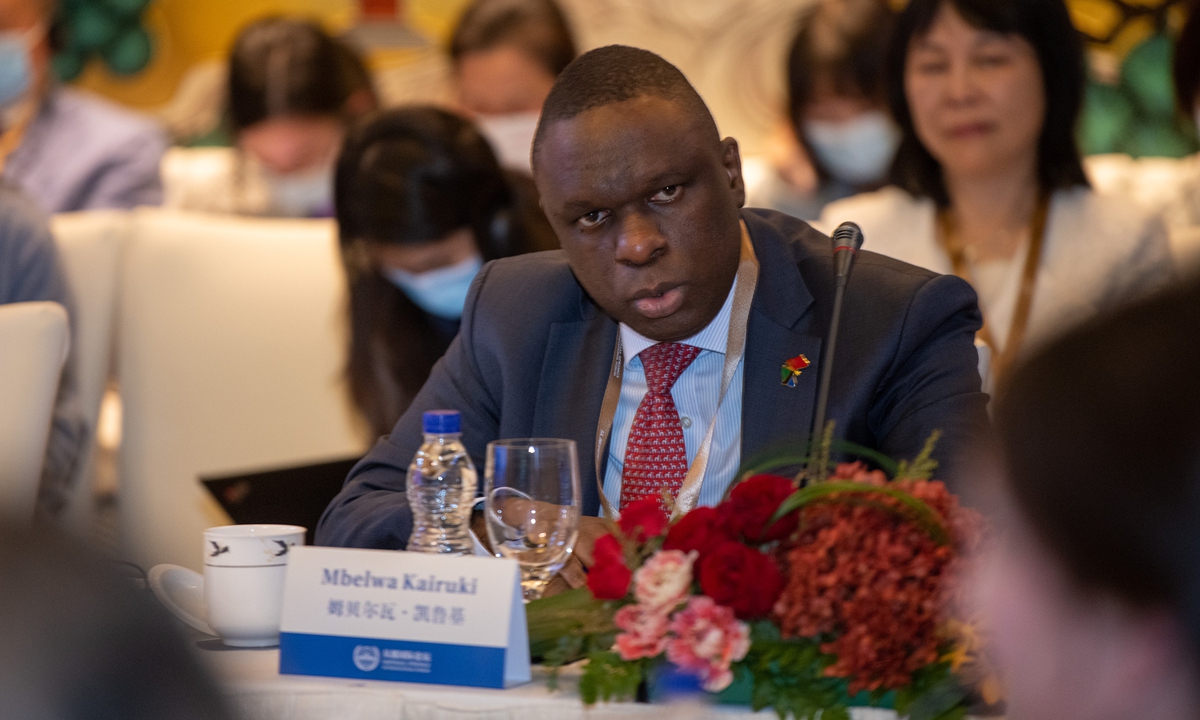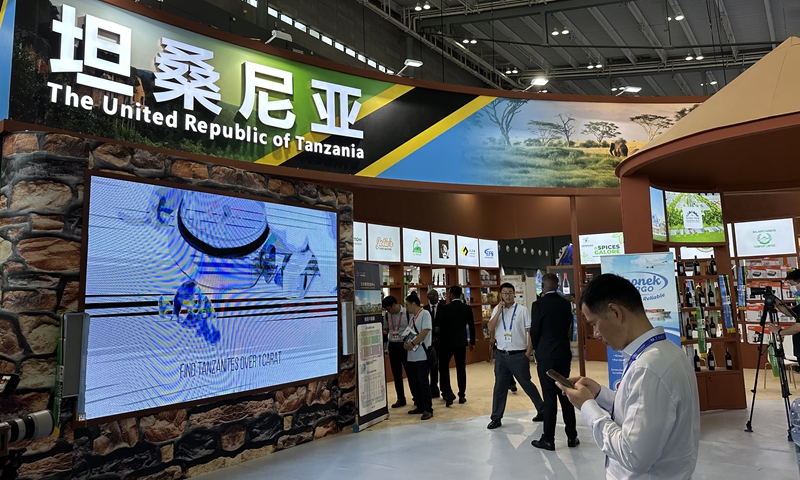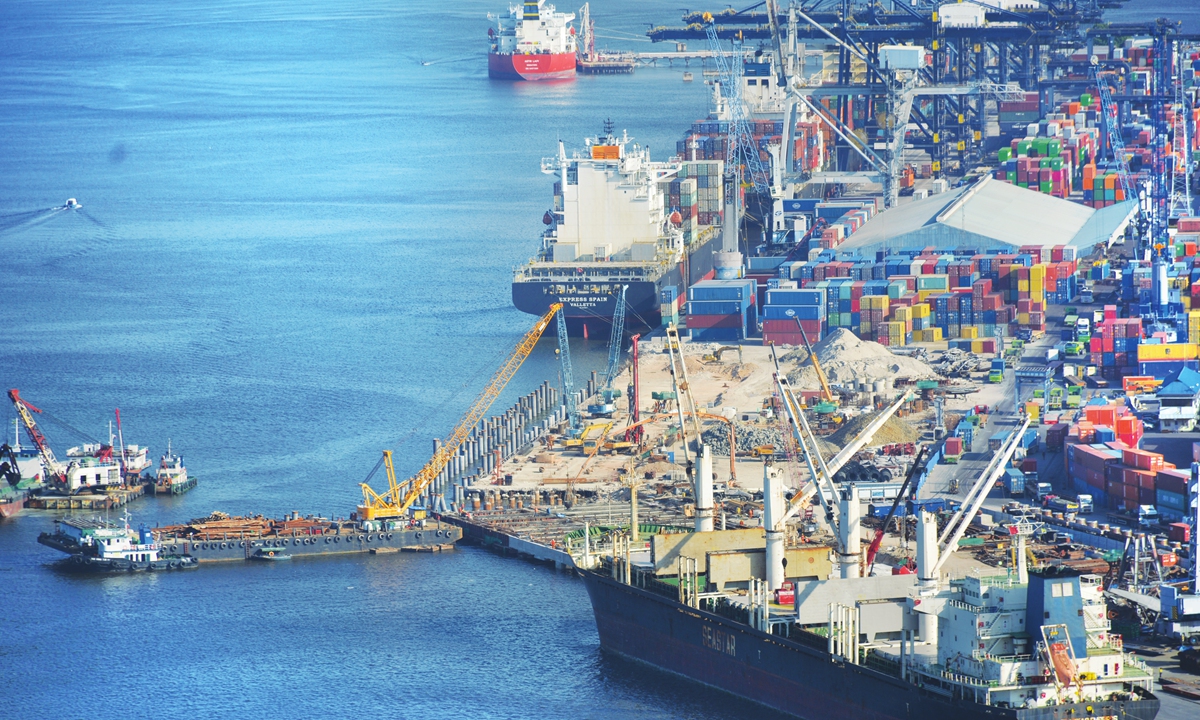
Photo: CFP
Ambassador of Tanzania to China Mbelwa Kairuki has refuted what he called "propaganda" about a so-called "debt trap" in China-Africa cooperation, noting that the majority of the continent's debts are owed to other countries and institutions.
Kairuki made the remarks on the sidelines of the third China-Africa Economic and Trade Expo which kicked off on Thursday in Changsha, Central China's Hunan Province.
Kairuki praised the China-proposed Belt and Road Initiative (BRI), which he said has brought a lot of benefits for local people.
"We have seen tremendous achievements in terms of connectivity between BRI countries, individual policy connectivity, trade connectivity, infrastructure connectivity, and people-to-people [exchanges]," Kairuki told the Global Times.
"We've started direct flights from Tanzania to China and this has helped trade and investment between our people, as well as allowing tourists and students to go to China," Kairuki said.

A view of Tanzania booth at the Third China-Africa Economic and Trade Expo held in Changsha, Central China's Hunan Province on June 29, 2023. Photo: Tu Lei/GT
Regarding the debt trap claims, he said it was just "propaganda."
In January 2023, during a joint press conference with Chairperson of the African Union Commission Moussa Faki Mahamat, Foreign Minister Qin Gang refuted the allegation that China is creating a debt trap in Africa.
Relevant reports from the World Bank have shown that multilateral financial institutions and commercial creditors hold nearly three-quarters of Africa's total external debt. They have a larger share of Africa's debt, and they can and should take more robust actions to relieve the debt burden on African countries, Qin said.
Regarding some Western countries' attempts to "decouple" from China or "de-risk" their trade with China, Kairuki said the view was misguided.
"As far as we are concerned, there are many opportunities for cooperation in terms of trade, [and] in terms of investment."

The construction scene of Chinese firm participating in Dar es Salaam Port in Tanzania File Photo: VCG
Tanzania's ambassador also said that Chinese investments and enterprises have done a lot of work in the country, like building ports, roads and other infrastructure.
In September 2018, China and Tanzania signed a Memorandum of Understanding on BRI Cooperation.
Official data showed that in 2022, the bilateral trade volume was $8.31 billion, a year-on-year increase of 23.7 percent. In terms of infrastructure construction, Chinese companies have participated in many projects, including Dar es Salaam Port and Tanga Port.
China-Africa economic and trade cooperation has led to remarkable achievements in recent years. Bilateral trade saw a 20-fold increase between 2000 and 2022 and an average annual growth rate of 17.7 percent. In 2022, trade between China and African countries rose 11 percent year-on-year to $282 billion. China has also taken various steps in its plan to increase trade with African countries to $300 billion by 2025.






